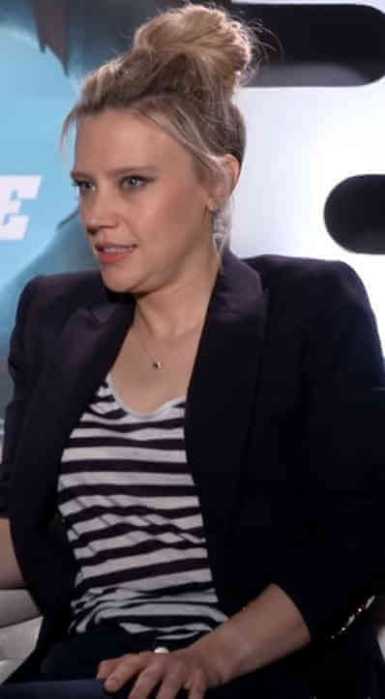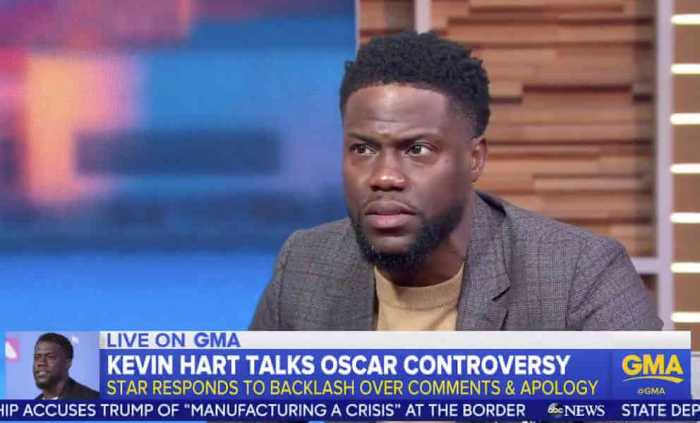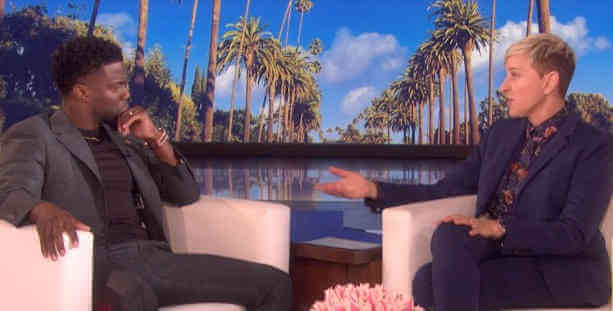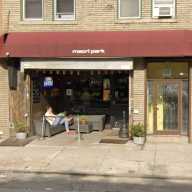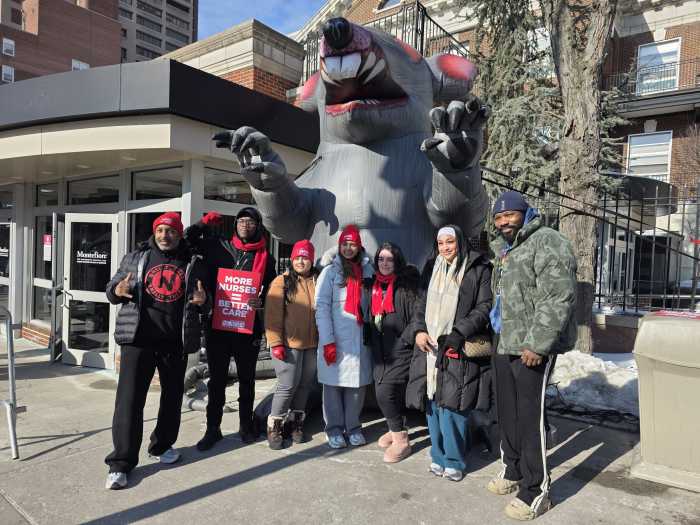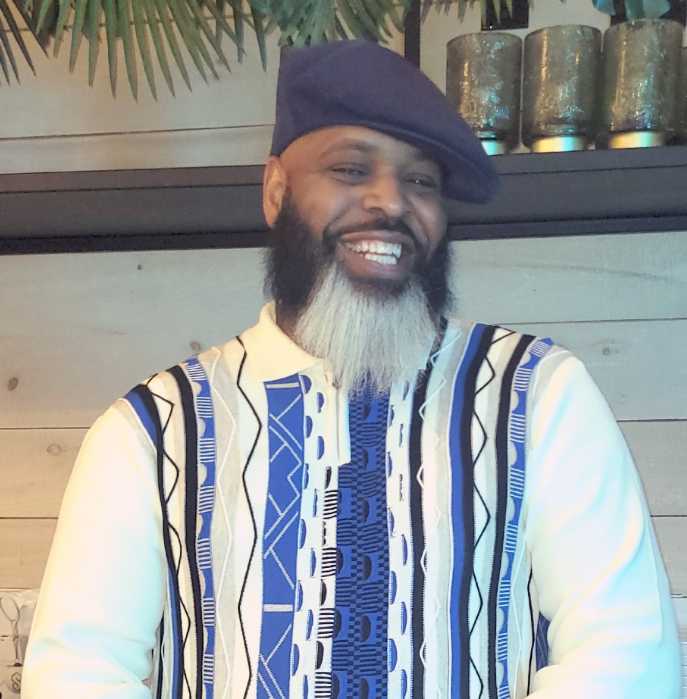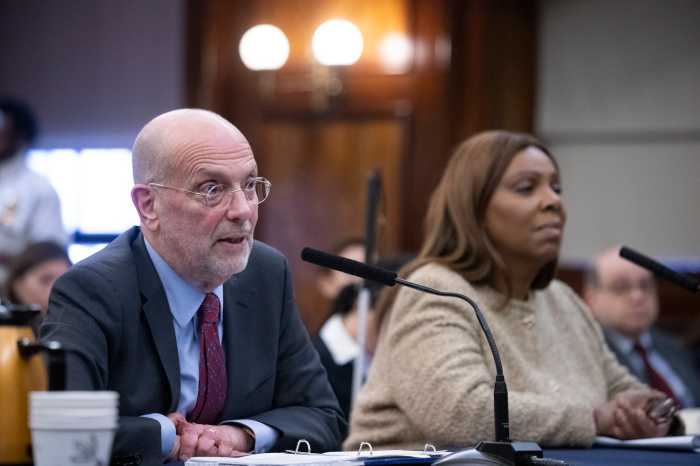Before she even opened her mouth, I knew she was something I’d never seen on stage before. An ordinary lesbian. With a sensible hairdo, sensible shoes, and a high-class blazer doing nothing to hide her wide hips. I felt a rare shock of recognition, followed by an incredible shame that I hadn’t imagined her at all, even if I know dozens of dykes in Real Life that look and move just like her.
I’d heard a lot about Hannah Gadsby before I finally saw her show. Even read a couple of profiles extolling her groundbreaking work deconstructing comedy, her “fresh” (lesbian) voice. By the time I clicked on her show, “Nanette,” I had the totally mistaken idea she’d look like Tig Notaro but with grad school glasses and maybe an undercut.
And I had to reckon again how visibility matters. If you aren’t seen as a community you won’t have a political voice. But what we see — or don’t — also shapes our imaginations. I’ve read posts by young women who identified either as bi or asexual because they hadn’t seen enough lesbians to imagine that it was okay to only like other girls. Then there’s the young woman who won’t use the word lesbian because she doesn’t identify at all with the characters of the “L Word.” Who else have we got? In the mainstream media, the size 2 Ellen DeGeneres who wears masculine clothes, but styles her short blond hair to ingénue cute so we know the door to men’s not quite slammed shut.
Lena Waithe buzzed her dreadlocks off just a month ago, no longer afraid of getting called stud, and so far has gotten more accolades than hate. But it helps that she has that long lean Instagrammable body that can pull off anything from pride capes to harem pants. Because even now, nothing’s worse than some fat dyke who’s probably only a lez because she’s too ugly to get a man. I still remember how when the chubby Rosie O’Donnell came out, she cut her hair truck driver short, but after the backlash immediately let it grow out to a softer, safer, more feminine length — where it still is today.
Inside the great American brain, lesbians are still most present as femmes in the porn that straight guys wack off to. There’s no use at all for a more masculine beauty. Masturbating to a butch would make a man practically gay. And so studly or androgynous or genderqueer dykes are sidelined, even in porn. Which means I couldn’t stop sobbing during the 2015 Tonys when, for nearly the first time, Americans were forced to view butch dykes through the loving eyes of “Fun Home.” Why is it so hard to acknowledge that a woman with dungarees and a swagger and a ring of keys could be seen as beautiful? Or handsome? Could be seen at all.
Hannah doesn’t minimize her body, or exist in spite of it. It is there in front of us as an indigestible fact. As female. As masculine. As lesbian. And as Hannah gradually shifts gears from a stand-up gig into more of a one-woman show, unraveling the jokes that stop at the punchline to tell the rest of the story without a chuckle or a sneer, we learn how much she’s paid for all that wrongness in the currency of violence, shame, and fear. In the process, she lifts the veil not just on her pain, but her anger against the source of it: men. And that was her most radical act of all.
Despite #MeToo and the acknowledgment that rape culture is pervasive and defining and that misogyny restricts our lives from the cradle, women are somehow still forbidden to be angry at men. The taboo is worse for lesbians. Even other lesbians hate dykes seen as man-hating. We, apparently, are just supposed to grin and bear it. No matter if we’ve been beaten. No matter if we’ve been raped and constantly degraded. Well, not Hanna Gadsby. Not that dyke standing unapologetically on the stage in her soft butch body, unprotected by swagger and tats, but still doing battle with the world as pointedly and brutally as Richard Pryor did.
Invited to the Emmys last week on a wave of notoriety, Hannah Gadsby did our dyke team proud making jokes about jokes. And men, declaring, “This is… not normal. The world’s gone a bit crazy. I mean, for somebody like me — a nobody from nowhere — gets this sweet gig. Free suit, new boots, just cause I don’t like men.” She went on to say, “That’s a joke, of course. Just jokes, fellas, calm down. You know, #NotAllMen, but a lot of ‘em. No, it is just jokes, but what are jokes these days? We don’t know. Nobody knows what jokes are. Especially not men. Am I right, fellas? That’s why I’m presenting alone.”

